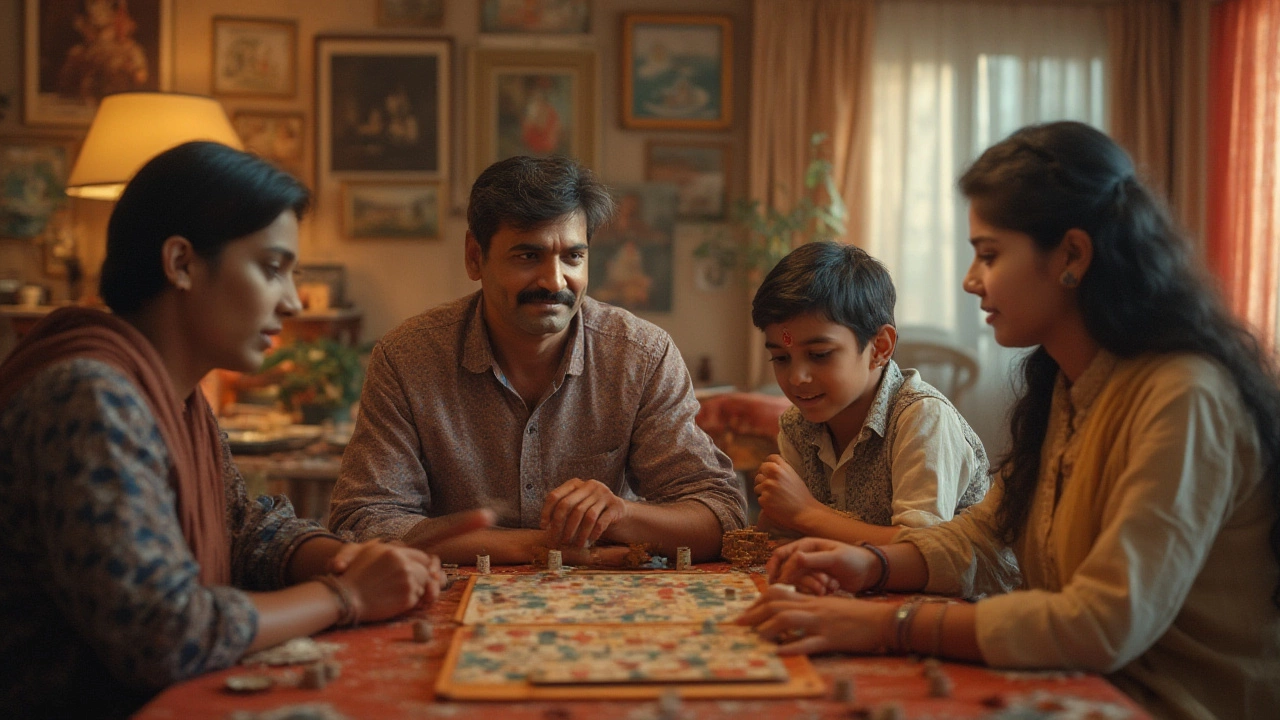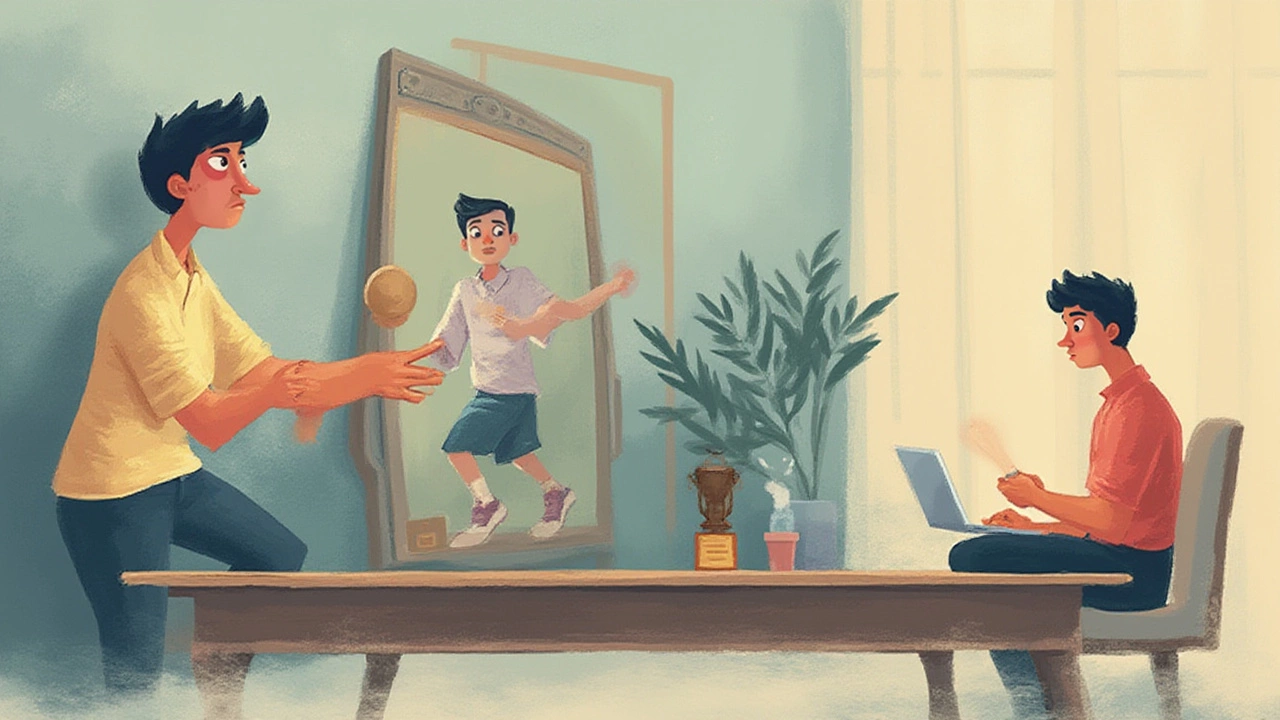You know that person who turns even a simple game of Monopoly into a strategic battle for the ages? The one who simply can’t let “good enough” slide, whether it’s on the football pitch, at the office, or when helping their kids with homework? Sometimes, watching people like this, I wonder: what really makes a person extremely competitive? Why do some folks always seem to approach life as if it’s a race and they’re determined to finish first—no matter the stakes?
The Science and Roots Behind the Competitive Mindset
At first glance, it’s easy to chalk up extreme competitiveness to “just their personality.” But it runs deeper than that. Nearly all research on the topic points to a mix of biology, upbringing, and life experience, all swirling together in unpredictable ways. Let’s get a bit nerdy for a second—did you know that certain genes, like those dealing with dopamine reception, have been linked to “winner effect” behaviors? Dopamine, the so-called reward chemical, gives your brain a feel-good rush during a win, boosting the desire to compete again. This is a big part of why kids like Rohan can become obsessed with winning at chess or even video games. Their brains light up like a pinball machine every time they pull ahead of someone else.
Now, let’s talk home life—because that matters, too. Plenty of high-achieving adults grew up in households where competition was baked into daily life. Maybe they had to fight for their parents’ attention, or maybe siblings kept score of, well, everything. If your family treats even hide-and-seek like football finals, you’re getting a crash course in competitive behaviors before you even hit secondary school.
Of course, it isn’t all nature and nurture. There’s the environment you’re dropped into at school or work. For example, some psychologist friends in London showed me a study from 2023: students who found themselves in highly competitive classrooms, like elite maths programs or select sports teams, were twice as likely to score as “extremely competitive” adults ten years down the line. If Kavya’s school pushes for academic prizes every term, you can bet the students keep a mental leaderboard. This drive is often reinforced—even idolized—making fierce competition feel like the only way to succeed.

Hidden Advantages and Dark Sides of Being Ultra-Competitive
People often see highly competitive folks as destined for big things. There’s some truth here: competitiveness can push you harder, fuel constant improvement, and open doors. If you look at data from major athletes, like the Premier League, more than 80% of top performers say their desire to win started young and made them never settle for less. The same pattern appears in Fortune 500 CEOs—about two-thirds credit competitiveness for their career leaps, according to a 2022 Harvard study.
This drive can be powerful. Competitive people set the tempo. They dig deep and keep everyone on their toes. If Rohan wins at science fair projects enough times, he’ll chase that thrill into adulthood. Some neuroscientists believe these wins trigger minor surges of testosterone and adrenaline, emotions reinforcing a lifelong taste for chasing victories. This isn’t just theory—brain scans show intensely competitive people have more activity in their reward systems when playing games or even tackling work goals.
But, scroll through any sports forum or sit in on a company board meeting, and you’ll see the flip side. Too much competition can wreck friendships, tear down teamwork, and, in nasty cases, stir up stress-related health issues. One study from the University of Manchester in 2021 found that workers scoring highest on competitive drive were 40% more likely to report anxiety or sleep problems than more laid-back peers.
- A relentless desire to win can make losses hit harder. When everything is a battle, disappointment can turn toxic, leading to mood drops or self-doubt.
- Relationships take a hit. If you turn every household chore into a showdown (trust me, been there!), people around you can get fed up.
- Some competitive folks develop tunnel vision—missing out on creative or collaborative solutions because “my way” becomes the only goal.
- Physical signs: headaches, stomach pain, or messed-up sleep patterns, especially if competition starts to look like a zero-sum game instead of a chance to learn.
It doesn’t have to be all or nothing, though. There are competitive people who learn to channel their drive into personal bests rather than constant head-to-heads. My wife, for example, keeps a running list of her fastest 5K times but doesn’t lose sleep over beating everyone else in the Dad’s group. Shifting from “beat them” to “beat yesterday’s me” can turn competitiveness into a growth engine instead of a stress bomb.
| Characteristic | Highly Competitive | Moderately Competitive | Low Competitive |
|---|---|---|---|
| Motivation | Win at any cost | Enjoy improving | Value participation |
| Response to loss | Frustration or anger | Reflection | Acceptance |
| Relationship impact | Frequent conflict | Constructive rivalry | Collaboration |
| Health effects | Higher stress | Manageable stress | Lower stress |

Practical Tips to Harness or Dial Down Competitiveness
If you see yourself in all this—or you’re a parent watching your kids sprint for gold stars—you might wonder if extreme competitiveness can be reshaped, instead of switched off or left to run wild. It’s possible, and even small tweaks can make a difference.
- Spot your triggers. Is it school grades, workplace targets, or even social media “likes”? Noting where you get most fired up is the first step to understanding your own competitive settings.
- Shift your scoreboard. Instead of obsessing over whether you’re first or fastest, try tracking progress on a personal level. Max, our dog, doesn’t care how he compares to next door’s poodle—he just wants a better time fetching his favourite ball. There’s a lesson there for humans.
- Learn to celebrate others. Sounds basic, but clapping for a teammate can actually rewire the rush you get from “winning.” This makes future team-ups more fun and productive. Several Olympic coaches actually train athletes to cheer their rivals in practice sessions, and it works wonders for morale.
- Practice losing well. Competition doesn’t have to mean devastation when things don’t go your way. Instead of beating yourself up, see losses as information: What new skill can you learn? What did someone else do that worked? Asking these questions is common in elite training clinics in the UK.
- Guard your mental health. If competing leaves you wound up or restless, mix in relaxing routines. Breathing exercises, a casual walk with your pet, or even playing a game for pure fun can help reset your brain’s reward system.
- Teach kids both sides. I encourage Rohan and Kavya to chase prizes, but also to spot when friendly rivalry tips over into grudge matches. We talk about fairness, teamwork, and some days, just playing for laughs. Turns out, the happiest kids—and adults—aren’t just those collecting trophies, but those enjoying the journey.
One interesting fact: in 2024, a UK survey of business leaders said the most effective teams had a mix of highly competitive and more collaborative personalities. Balance, not just raw ambition, pushes everyone higher.
The heart of extreme competitiveness is simple—a hunger to be better, faster, stronger. That’s not a bad thing at all, if you know when to sprint and when to pause for the team photo. When the drive to win is balanced with empathy and self-awareness, it’s a force that can reshape not just individual lives, but whole classrooms and boardrooms. If you ever catch yourself celebrating too hard after beating your kids at Mario Kart—don’t worry, you’re not the only one. Just keep an eye on the big picture: sometimes, the real race is learning to enjoy the game.
